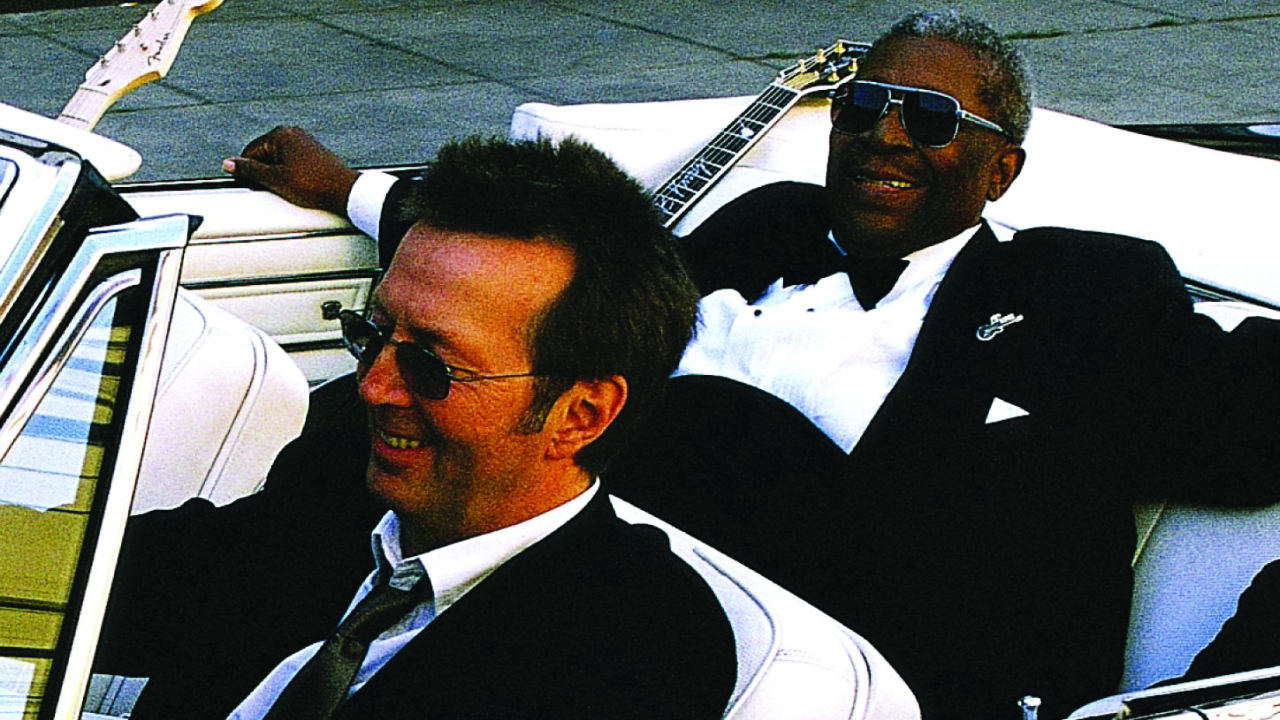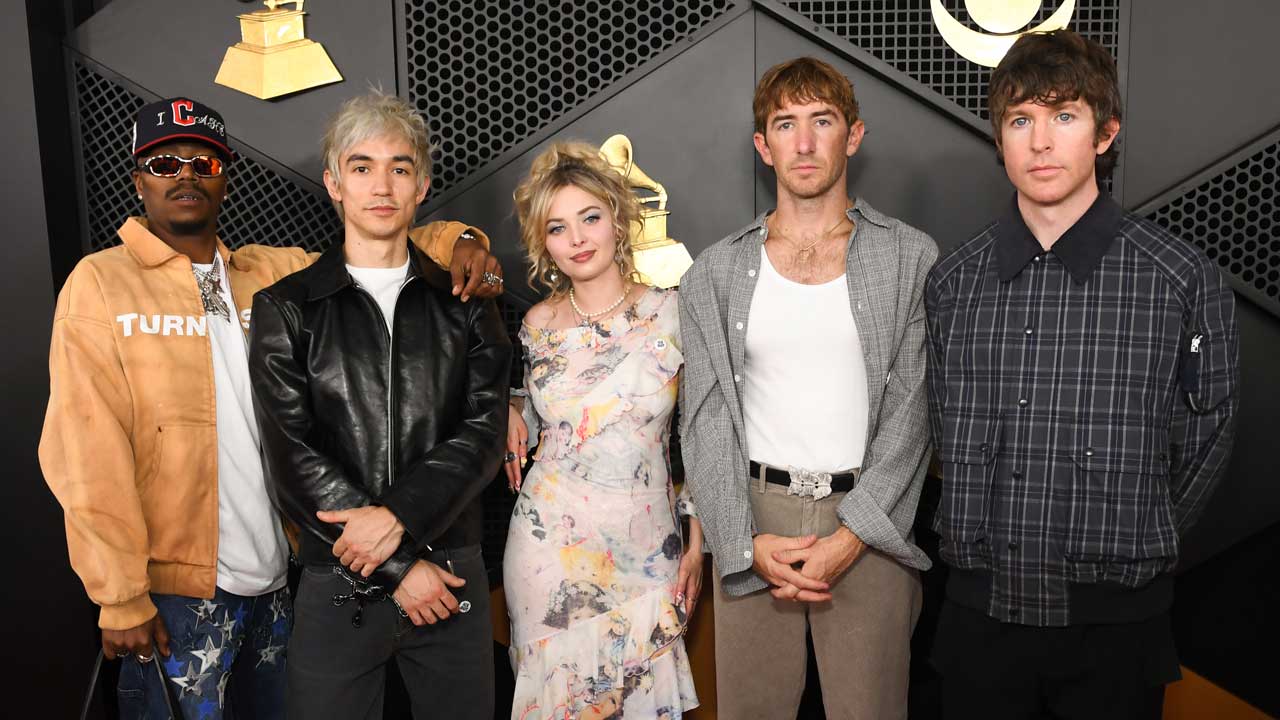You can trust Louder
Considering the oodles of mutual respect between them, Eric Clapton and BB King went through a protracted courtship dance before they finally convened for a full studio album in 2000.
“This is something that I’ve been dreaming about all my life,” wrote Clapton in the liner notes. “BB is my hero, always has been.”
He’s clearly telling the truth there. From the Driving Miss Daisy cover shot, the roles of junior and senior partner are firmly established early on Riding With The King. The older man – then 74 years of age – is rightly in the spotlight, whether spinning a spoken-word monologue over the outro of the title track, spraying Lucille over standouts like When My Heart Beats Like A Hammer, or barking the majority of lead vocals in that burnt-honey voice.
Slowhand, meanwhile – a bright young whippersnapper at a sprightly 55 years old – prostrates himself low in the mix like a submissive puppy (the involvement of three further guitarists makes it hard to tell when he’s even playing) and sounds like a relative pipsqueak when he steps up to the mic. He does have his moments, though, particularly on a wah-quacking Marry You and the beautiful acoustic slide-blues of Key To The Highway.
As ever with such all-star projects, Riding With The King is less than the sum of its parts. There’s a distinct lack of original material to get your teeth into (the meat of the tracklisting is made up of early BB benchmarks like Help The Poor or covers of songs by Big Bill Broonzy et al). The relentlessly slick production that critics bemoaned so much on its release isn’t helped any by the crystalline SACD rendering on this new version, and while we’re talking sonics, King’s weedy guitar tone and hesitant touch on Three O’Clock Blues is strangely unrepresentative of the big man.
And yet, this is also a deeply moving album, with its heart palpably in the right place and some wonderful moments of synergy. Just be warned: if you’re an emotional type, you’re liable to cry a river, from the inlay shot of the pair sitting on their amps trading licks in the 60s, to King’s devastating kiss-off on the aforementioned Three O’Clock Blues: ‘Goodbye everybody, I do believe this is the end…’
Sign up below to get the latest from Classic Rock, plus exclusive special offers, direct to your inbox!
Henry Yates has been a freelance journalist since 2002 and written about music for titles including The Guardian, The Telegraph, NME, Classic Rock, Guitarist, Total Guitar and Metal Hammer. He is the author of Walter Trout's official biography, Rescued From Reality, a music pundit on Times Radio and BBC TV, and an interviewer who has spoken to Brian May, Jimmy Page, Ozzy Osbourne, Ronnie Wood, Dave Grohl, Marilyn Manson, Kiefer Sutherland and many more.


